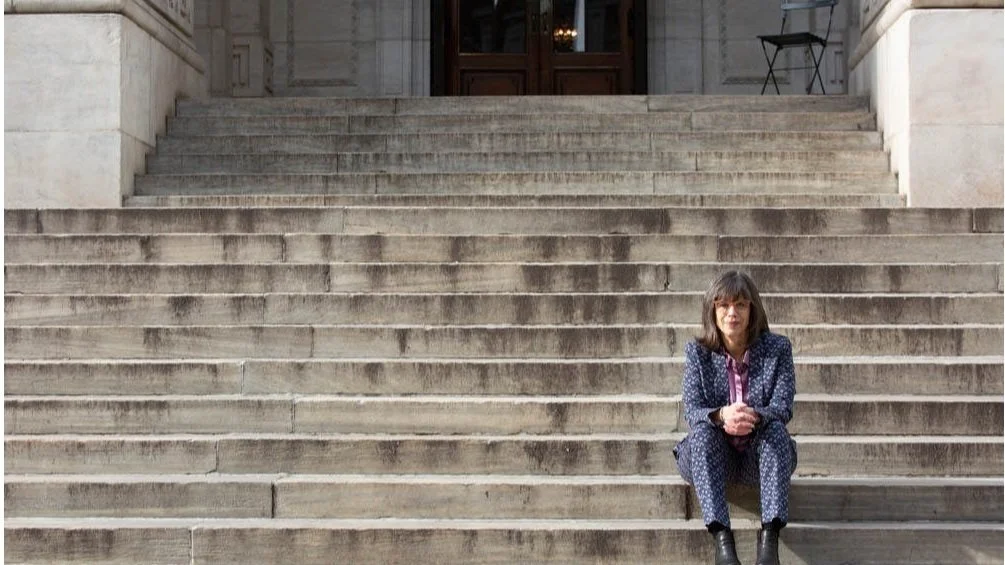Maybe your boss recently offered you some “constructive” criticism and said:
You sound unsure of yourself which makes no sense because you’re an expert.
Or you’re looking to move into a leadership role someday or any day now and you need to foster that illusive “executive presence.”
Either because your boss is pushing you or you’re looking to elevate your speaking, you don’t know how to choose the best public speaking coach for you.
Here’s 7 steps to choosing the best public speaking coach:
1. Ask around.
A great way to find the right coach for you is a personal referral from someone you trust. If someone you know has worked with a public speaking coach, ask:
What did you like about this coach?
What’s an example of what they taught you? Where did you start? Where did you end up?
2. Arrange a free consultation with 2-3 coaches.
Before the meeting, take a look at the coach’s website.
Are there meaningful testimonials that resonate with you?
Is there a robust client list with clients who are similar to you?
Can you watch a video and see the coach in action?
Do you connect with how the coach describes what they do?
Does the website inspire you or have the energy that works for you?
3. Ask these questions at your free consultation:
How long have you been a public speaking coach?
What types of clients do you work with?
What are some examples of how you’ve helped them?
Have you helped clients in my situation? Be specific about the kind of presentation you’re preparing for. For example, are you:
Introducing yourself?
Speaking on a panel?
Prepping for an interview?
Rehearsing a speech to give at the NASDAQ opening bell?
Giving a toast?
Serving as Master of Ceremonies?
Preparing to speak off the cuff or on the fly?
Teaching a workshop?
Delivering a speech?
Updating the board of directors, client or team?
Honing your investor pitch?
Recording a video?
Does the coach help with content? Delivery? Visuals? Or just one of these things? You want to make sure you find a coach who will help you with the expertise you need. For example, when people work with me we always start with content because sometimes the problem with delivery has to do with the story being told: It’s unclear or needs to be streamlined.
Find out if the coach has experience with the type of venue where you’ll be presenting. Different formats might include:
Online or in-person?
In-person on a big stage or in-person in a small boardroom?
Ideally, you want a coach who has prepared someone for a very similar venue and format to the one on your plate right now.
4. The coach might have questions for you. I ask these questions in my consultations. Be prepared to answer:
What inspired you to seek out a public speaking coach?
What’s your self-assessment? What are you good at? What feels more challenging?
What feedback, if any, have you received about your presentations from others, including colleagues and bosses?
Do you have any recordings of you speaking? (I always like to see someone in person so I can do my own assessment of what they need.)
Have you worked with a public speaking coach before? How was that experience for you?
5. Pay attention to these questions during the consult or reflect on them afterwards:
What’s the vibe? Does it seem like this coach would be fun to work with while you’re learning this new skill?
Has the coach offered you any coaching in the consultation? Was it helpful? (The consult isn’t a coaching session but it should include some coaching so that you get an idea of what this coach has to offer. The coaching should feel useful and doable.)
Does it seem like the coach would provide both positive feedback and constructive guidance? You want someone who can name what you’re already doing well and give you concrete and practical tips for making improvements.
Is it clear how you’ll prepare for each session? Or what you need to bring? (I don’t like wasting time in the first session trying to figure that out. I like us to start working right out of the gate.)
6. Watch out for these red flags:
Too big a commitment. I like taking baby steps with people I haven’t worked with yet. If the initial consultation goes well, can you work together for a limited time? If coaching requires a huge commitment, I would ask if there’s a smaller chunk you could work on so you can test the waters.
No chemistry. There should be some amount of chemistry between you and the coach. Some people are easier to work with than others and that doesn’t make them a good or bad coach but good chemistry means they are a coach you can excel with.
7. Keep me posted.
I don’t have time to work with everyone who contacts me and I’m not the right coach for everyone. I also enjoy knowing other great public speaking coaches. If you have a good experience with someone, let me know how you benefited from working with them. I might want to add them to my referral list.
